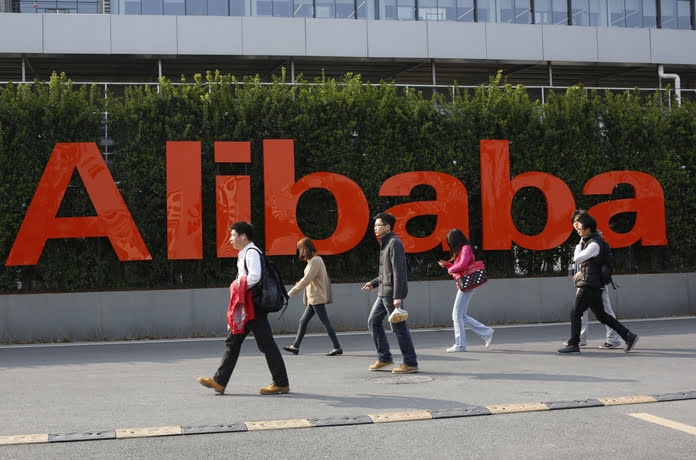As the company’s 1Q23 results approach, Alibaba Group Holding Limited (NYSE:BABA, OTCPK:BABAF) is beginning to see the light at the end of the tunnel. Here are some of the important events and business updates that have occurred since the previous quarter and the company’s progress since then.
China commerce
More than 260,000 brands participated in the latest 6.18 promotion event, with around 300 brands generating more than Rmb100 million in GMV and approximately 100 products generating more than Rmb100 million in sales. Furthermore, new product launches gained traction in this year’s 6.18 promotions, with 45 million new products launched accounting for 30% of all transactions during the event. Furthermore, the GMV of over 100,000 SMEs increased by more than 100% year on year.
Furthermore, the number of Taobao shopping platform live streaming accounts has increased 12 percent year on year, with 32 live streaming rooms capable of generating more than Rmb100 million in GMV. According to QuestMobile, Taobao MAU increased by 28 percent yearly to 128 million. Total time spent increased by 56 percent year on year to 9 billion minutes, with the average time spent per user at 70 minutes.
Local services and Cainiao
Alibaba’s Eleme online food delivery service launched a promotion to give customers free orders. These orders range in value from Rmb10 to Rmb100, and the experience was gamified with games and puzzles. Because of its interactive components, this campaign went viral on social media. It also displays the company’s significant competitive advantage in being able to engage with customers and should assist to boost the company’s brand image.
Moreover, logistics provider Cainiao boosted its fulfillment performance during the 6.18 promotions, with order volume increasing 100 percent year on year and 70 percent of orders arriving the same day. This is astonishing to me, as Cainiao continues to enhance efficiency and shorten delivery times, creating a flywheel effect for the entire Group.
International commerce to be a resilient driver of growth
According to a poll of 766 online sellers in Southeast Asia conducted by Lazada on May 12, vendors in the region continue to have confidence in the business outlook and see development in their business. 77 percent of online sellers polled predicted a 10% growth in sales in 2Q22, according to the report. This optimism stems from the progressive relaxation of covid-19 limits, which increases commercial activity. In fact, the online vendors polled are surprisingly positive about the economic situation, with 75% predicting a brighter outlook in the second quarter of 2022.
Other intriguing results include that 73 percent of Southeast Asian customers consider e-commerce an essential part of their daily lives. In comparison, only 23 percent believe higher costs due to inflation and supply chain disruptions will be a potential obstacle. This demonstrates that e-commerce is here to stay in the region, as elsewhere, and is not a fad that will fade once pandemic constraints relax. Furthermore, it is heartening to note that online vendors are generally optimistic about the economy and their business prospects, with little fear about the present inflationary environment and supply chain disruptions.
While Alibaba’s e-commerce efforts are still in their early stages of development, Lazada has numerous potential to innovate and provide new ways to purchase online through shopping festivals and interactive experiences. Furthermore, Lazada will be able to tap into the experience and resources of Alibaba, a successful e-commerce company in China in its own right, allowing Lazada to create axs competitive advantage in the area.
Cloud computing
Alibaba’s cloud business is one of the world’s largest. According to the most recent Gartner research on Infrastructure as a Service providers’ (“IaaS”) market share, AliCloud is the third largest IaaS provider for the fourth consecutive year. It has a 9.55 percent global market share and a 25.5 percent APAC market share. AliCloud has expanded across 27 regions and into a variety of verticals. Alibaba is also extending its data centers across APAC, with operations in Indonesia, the Philippines, South Korea, and Thailand, and expanding its global reach with a third data center in Germany.
Alibaba Cloud also opened its third data center in Germany and two new data centers in Saudi Arabia on May 17. These international development options for Alibaba demonstrate the company’s strength in cloud computing skills and execution capabilities and provide further opportunities to increase its international market share.
Alibaba also unveiled Lingyang, a new brand that markets itself as a data intelligence service provider (“DaaS”), providing customers with a new data intelligence capacity. It comprises services such as analytical cloud and marketing cloud, among others. Lingyang will offer services to assist its customers in meeting their digitization requirements. Lingyang will specifically target customers with significant amounts of data that rely on these data as a growth driver and enterprises that require digital transformation. LingYang supported internal units such as Taobao and Tmall and now serves large brands such as LVMH (OTCPK:LVMHF), McDonald’s (MCD), and XPeng (XPEV), among others.
The company can market itself as a company with a wide range of solutions and a comprehensive range of products and services for its customers by presenting itself as a DaaS provider.
Valuation
Based on a SOTP valuation, analysis determined a target price for Alibaba. A DCF model for China and international commerce has an indicated P/E of 15x and 30x, respectively. This is reasonable given the greater growth profile of the foreign commerce area. Cainiao’s value was based on the most recent transaction available and for local services, utilizing a 3.5x sales multiple similar to Meituan (OTCPK:MPNGF). Finally, using a 25% holding company discount, we arrive at a SOTP valuation target price of $164, implying a 50% increase over current levels.
Conclusion
Alibaba’s future appears to be bright. As the corporation pursues alignment with Chinese regulations in the second half of 2022, regulatory pressures should begin to relax. Furthermore, based on the 6.18 sales, China trade appears to be doing well as it continues to grow and remain resilient in uncertain times for China. Furthermore, there is a significant benefit to international commerce, since Lazada is likely to be a main driver of its e-commerce objectives in the long term. AliCloud continues to dominate, and with further innovation, it will likely maintain its global and APAC leader position.
Featured Image: Megapixl @Minipig5188

















